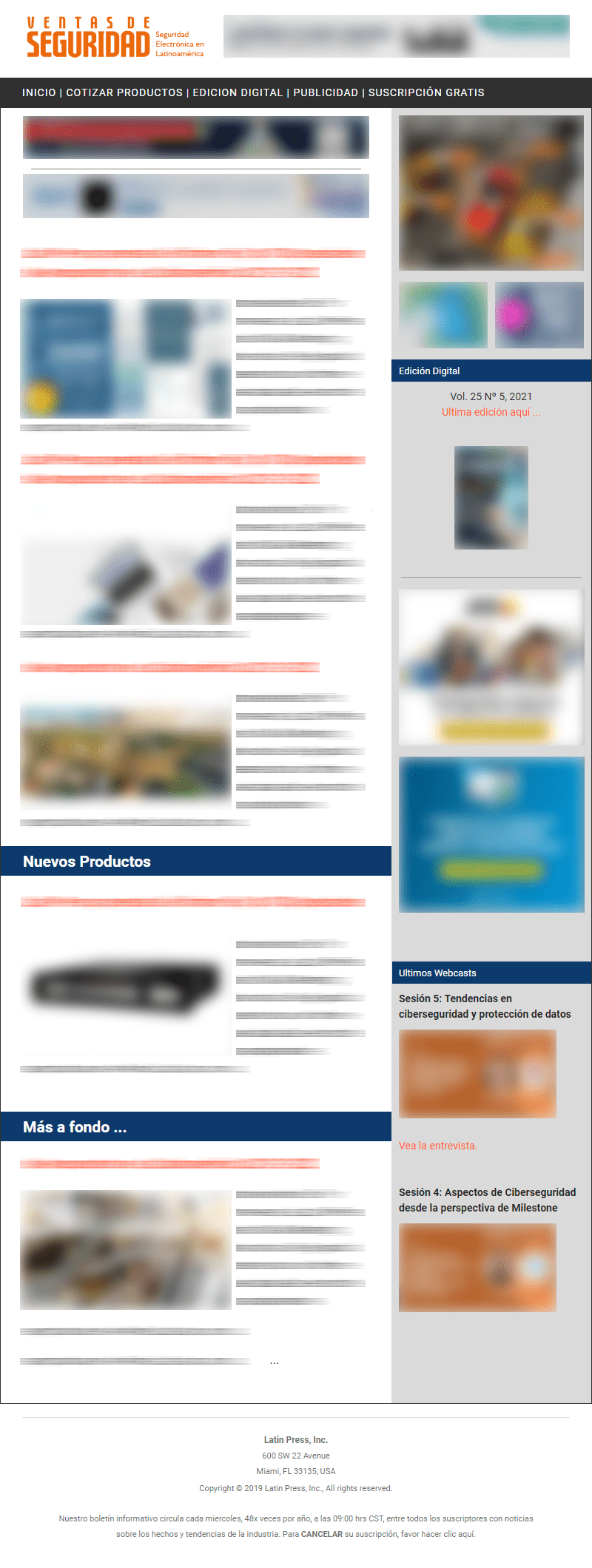If you remember watching movies at home on VHS, listening to cassettes in your car, or on a bulky Walkman with headphones plugged in, you probably also remember the first mobile phones.
By Jorge Bejarano, PACS End User Business Manager at HID*
Brick-sized with limited functionality, these smartphones were worn by anyone who aspired to be fashionable and were classified as "Yuppies," the phrase of the 1980s to describe those young, professional and on the rise.
 Fast forward a few years to the 1990s, and mobiles became commonplace and considerably smaller, with additional features like digital cameras and the ability to send text messages. Then came smartphones, and even young children were adept at operating these mini-computers that connected them to the rest of the world via the Internet. The games were no longer received once a year in a colorful box at Christmas; They were now instantly accessible on their parents' smartphones.
Fast forward a few years to the 1990s, and mobiles became commonplace and considerably smaller, with additional features like digital cameras and the ability to send text messages. Then came smartphones, and even young children were adept at operating these mini-computers that connected them to the rest of the world via the Internet. The games were no longer received once a year in a colorful box at Christmas; They were now instantly accessible on their parents' smartphones.
These young children were part of a new generation, Generation Z, and for them technology has always been part of their experience. It's unimaginable for them to live in a world where things aren't available at the touch of a key, a swipe of a phone, or the touch of a button.
Previous generations broke their own molds and pushed the boundaries with new styles of music and fashion, but Gen Z is the one dragging the Baby Boomers and Gen X technophobes into a brave new world of technology as a lifestyle.
In college, Gen Z sets the pace
Gen Z is now studying at universities around the world and their choice of study location is based on much more than the quality and availability of courses. They have high expectations for their student experience and mobile access is high on their wish list. They want to be able to manage their student life through their smartphone the same way they use it for everything else.
They want to use their smartphones to pay for transportation, food, and facilities, to access safe areas, stay up to date with important notifications and alerts, learn about upcoming events, and be able to send an alarm in case of an emergency. And now they can. Mobile access isn't coming, it's already here and it's proving its worth around the world.
Mobile Access Is a Necessity, Not a Want
Students no longer have to worry about losing the plastic cards needed to access their classes or accommodation. Gen Z rarely lose sight of their phones, but in the unlikely event that they do, their secure authentication settings prevent anyone else from gaining access, unlike a card, which can be used by anyone who finds it until it's manually revoked by security personnel, sometimes hours or days later.
In addition, Gen Z is environmentally conscious and appreciates the sustainability of mobile access over plastic cards, another benefit for universities that have green goals to meet and are willing to look beyond the traditional plastic cards they've relied on for years.
"Everything here is about the student experience," said Mano Soler, Director of Student Services and Operations at Les Roches Marbella. "It's our main driver and the reason we embrace and encourage innovation, because innovation makes life easier for our students and supports their well-being through safe technology. Students will eventually leave this campus, and in turn, they will take that knowledge and excellence to the world with them."
Driving Advantages on All Fronts
But the advantages for universities don't end there. Enrollment and control of access parameters are much faster and easier on a campus digital badge, freeing up staff to deal with other tasks.
Universities have found that mobile access increases student engagement and makes communication much easier, as apps allow for instant notification alerts that can urgently affect students, such as notices of broken water pipes or canceled classes.
Many colleges previously complained about low adoption of important apps that give students access to emergency help, but when integrated via mobile access, they have it at their fingertips without needing to download a separate app.
Everything the student needs is in one easily accessible place. There are also financial benefits for universities, with opportunities for return on investment and savings proven year after year compared to plastic cards. The technology is also future-proof as, once installed, it can evolve with the demands of the university and its students as more features and possibilities become available.
The benefits are numerous and the momentum of mobile access is growing rapidly, however, there are still some Gen X "fans" working in universities today who wish to hold on to the old way of doing things, simply because it's what they're used to. It may work for them, but will it work for students? I'd like to say that the choice is yours, but ultimately it's the students who will decide by taking their student fees elsewhere in search of a modern, pioneering university that understands their needs.
The students have spoken: mobile access is a necessity. Stay informed about the latest developments, integrations, and ROI opportunities that mobile access can offer your university by subscribing to our newsletter.
* Jorge Bejarano is a Sales Manager and Project Engineer in the electronic security and telecommunications sector, collaborating with technology integration companies in the markets of the Andean Region and Central America. With expertise in video surveillance systems, access control, intrusion alarms, and more, Bejarano is a versatile professional at the intersection of the commercial and technical realms.


























Leave your comment